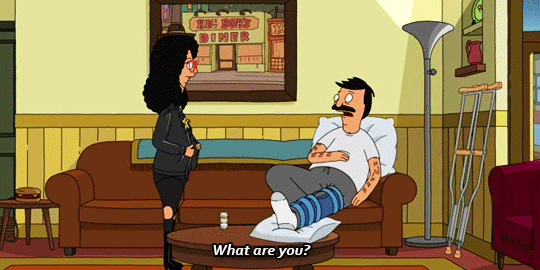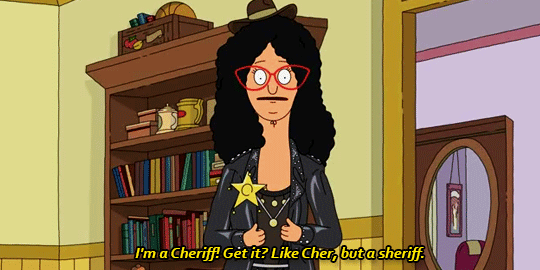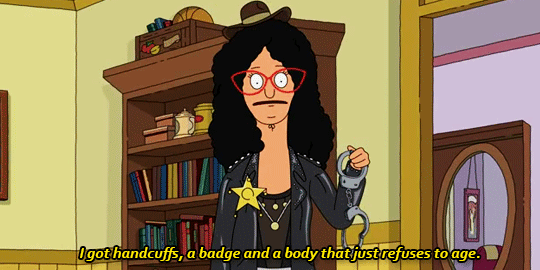(beautiful and highly caffeinated) I do post NSFW content, but my SW blog is bella-belfast. derby girl, sex worker and health care practitioner. queer/nonbinary, poly, cripple punk (albinism, chronic pain). tags are only used intermittently, proceed at your own risk.
Don't wanna be here? Send us removal request.
Text
Chronic illness and mental illness: I don’t get it! We’ve tried everything, and yet they’re still standing and getting stuff done! How can we possibly interrupt their life and make them as utterly miserable as possible?
Common cold: Hold my drink.
2K notes
·
View notes
Photo



a sweetie pie bought me flowers and panties
2K notes
·
View notes
Text
Me: My depression and fatigue aren’t bothering me much today, better make the most of this.
My joints:

653 notes
·
View notes
Note
Plus of course, blindness is a spectrum. I'm legally blind and was functional with enlarged sheet music depending on the lighting.
How do blind people learn to play music if they haven't memorised the piece. They need to read notes while playing. Even if you have braille or screen reading, there's no way to use them if your hands are on the instrument unless you go back and forth, which is not possible for smooth playing.
Well, that’s exactly it, we just memorize it.
For those who aren’t aware, there is a separate braille code for notating music. Not every blind musician uses it or knows how to read it, but it exists and a number of people do use it. For those who don’t use braille music, they can often figure it out by ear.
So the first step in understanding how a blind person learns to play music is understanding that we first of course learn how the instrument works. Just like anyone else, we learn the notes and how to produce each one on that instrument and what each key or string is. Every musician certainly starts with the basics, and of course that’s the same for blind musicians.
But OK, that’s pretty obvious, so how do we get from there to actually learning songs?
So, just like it can be easy to memorize every word of all of your favorite songs that you sing in the car, it can be equally as easy to learn all of the notes and chords and such to play your songs on your instrument.
You start by getting familiar with the music, first. If you have braille music you’ll probably read that a good few times, listen to the song, get a feel for what it really sounds like, all that good stuff. Then you say, “OK, let’s try and learn just the first few measures.” So you learn by listening to that section multiple times and reading over your music for that section and you try to re-create it. You start the way anyone does, a few notes at a time, and you might spend a good little while just getting that first part down, but eventually you do.
Then you just… Continue. When you have the first bit down really well, you expand. You read your music, listen to the song, learn how to play the next part, and try to put the pieces together. You practice each bit knowing what goes where and what comes after what, and put them together, and slowly learn to play it all together as one big piece. And each time you successfully tack on another piece you take that slightly bigger chunk and add onto it again.
And of course, many musicians know that the same general parts of a song will repeat themselves numerous times throughout the song. So once you learn how to play a section once, all you have to do is apply that same knowledge of that sequence to a different place in the song, and there you go. There’s a lot of repetition in music. Basically, all you have to do is learn each bit and know when the next part comes up.
So it’s true that if you’re playing instrument, you probably can’t read your Music and play at the same time. But you can read it a lot before you play, and while you’re learning, and the more you practice, and the more you just hear the song, the easier it will be to just know what to do and how to play the entire thing.
Memorizing entire songs really isn’t nearly as difficult as it might sound at first. And again, that repetition helps. You know how many times that verse repeats before the part in the middle but closer to the end that’s always different comes up, and you know how it begins, and how it ends, and how many times the verse repeats after that break in the second half, and it just becomes pretty well ingrained in your mind. The same way you learn exactly how to sing all of your favorite Fall Out Boy songs, you learn exactly how to play all of your instrumental songs.
Another blind musician friend and I actually got on the subject just a few days ago, feeling that it seems as though a lot of sighted musicians tend to become so reliant on their music when they really don’t have to be. Both of us grew up in course classes all our lives and I never even learned braille music and just learned to sing the song by ear, and both of us always noticed that most of our classmates seemed to fumble a lot if they didn’t have their music and never seem to actually learn the song in a deeper, more solidified way.
And this isn’t because we are blind that were better at this, but just because we don’t have the luxury of the music while playing, so the only thing to do is to learn to play the song without it. It just seems as though a lot of other people don’t take the time to learn the song without the music, or don’t seem to think that’s possible, even though they would immediately know all the words to their favorite song on their favorite album and would even recognize if, when seeing a band live, the band change up a part of the song on purpose from the way it usually sounds.
Of course there are those that have a much more difficult time with memorization, and there’s nothing wrong with that, and if you need the music then use it, but it seems as though there is a frequent overreliance on the sheet music for a lot of people when there really doesn’t need to be.
So basically, for most people, memorizing the song really isn’t all that difficult, and that’s how a lot of blind musicians do it. Even a lot of sighted musicians that get more famous do it. Bands on stage don’t tend to have sheet music in front of them, and singer songwriters don’t tend to have sheet music on stage with them, so it’s really not a special blind thing, just typical memorization.
Support me on Kofi: ko-fi.com/ActuallyBlind
77 notes
·
View notes
Quote
When Hard Candy came out a year later, Page quickly grew tired of answering questions about it. “I got really cranky about it when men would come in to interview me and go —” she paused to affect a nerdy, reedy male voice — “‘Oh no, are there any scissors in here?’ And I’d be like, ‘If we turned on prime-time television tonight, I will see a naked woman in a dumpster. So I need you to stop telling me how hard it is as a man to watch this movie.’
Ellen Page (via fulloflightning)
29K notes
·
View notes
Text
my friend a casual internet user: have you seen “just shower thoughts” it’s funny
me, who uses the internet and knows fight club isn’t a good movie: no it’s not
42K notes
·
View notes
Text
hey if u can’t drive/are a slow learner due to a disability or mental illness, just picture historical figures like pirates or the founding fathers trying to operate a car.
it’s only “easy” bc we’ve normalized it.
205K notes
·
View notes
Text
if you want to actually start to end homelessness, you need to give homeless people unconditional homes, including when we use them to do drugs or sit around drinking. either housing is unconditional or it isn’t
someone sitting at home alone, an active alcoholic, squandering your charity, drinking all day is better situation than a street homeless alcoholic. someone using drugs in your charity house is better than them doing the same w no shelter
most of you would not like most street homeless people, I definitely don’t and didn’t when I was street homeless. for every one person who uses unconditional shelter to turn themselves around, someone else will do jack shit and very slowly, if ever, work through the issues that made them homeless, will maybe never be able to live independently. still better than street homelessness, still worth doing. ultimately either you believe that shelter should be universal or you don’t
homeless people actually can’t be rehabilitated if you want to end homelessness. we either affirm the right to shelter for the worst drunken, lying, filthy, cheating, self destructive homeless people that exist, genuinely irredeemable wankers, or we concede that shelter is not a right
149K notes
·
View notes
Text
fire pit: *Crackles loudly*
my shitty joints: *cracks louder to assert dominance*
96K notes
·
View notes
Text
Shoutout to the people who:
-have symptoms that aren’t visible to others
-are able to function even while in extreme pain
-hide their illness well
-who don’t “seem sick”
-who have flareups at night or other times when no one else sees
-fight a daily battle that others can’t see
-feel like they’re making too big of a deal out of their illness because “it could be worse!”
I see you out there, I feel you, you’re awesome.
165K notes
·
View notes
Text
Be mad careful when you wash and dry your face, like, this should be obvious but omg fuck it up once and it hurrrrrts. Be careful when pulling shirts over your head!
does anyone who’s gotten a septum piercing have any tips for care? they sent me home with this spray solution and told me how frequently to spray it on there + do some rinses with deionized salt solution but other than that is there anything?
10 notes
·
View notes
Photo
Well, trans women are women, so if some TERF ass cis lesbian defines lesbianism with transphobic parameters....

Like they think identity is a contest or?? Who ever had the most in their group wins?
Identity just means a person fird a definition for a group. If you aren’t a homosexual female….
I think it’s too much focus on being likeable by everyone. People need to like your identity. To want to date you. To like your movement. It’s like the niceness combined with internet culture of likes and reports :/
Idk I’m just speculating (talking out my ass) and thought this shit is ridiculous
6 notes
·
View notes






